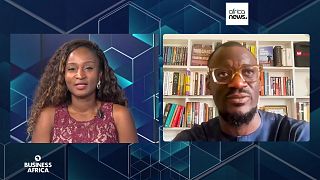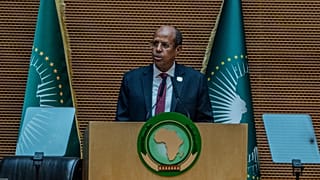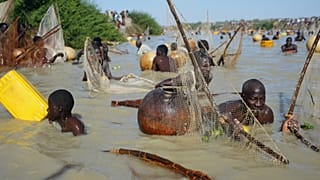Business Africa
As President Alassane Ouattara prepares to begin a fourth term, what is the outlook on Côte d'Ivoire’'s economic situation?
International observers are unanimous—the country has experienced continuous growth for over ten years. While signals are positive, caution remains due to a still fragile political climate and persistent social inequalities.
To better understand the situation, Business Africa spoke with economist Modibo Mao Makalou.
According to the economist: “When a country emerges from a crisis, its economic growth tends to be quite high. Côte d'Ivoire’s case is particular, however. Since the end of the political crisis in 2011, the country has one of the highest growth rates on the continent, and this trend is expected to continue into next year, with Côte d'Ivoire potentially reaching up to 8% growth.”
The Malian economist also acknowledges ongoing social inequalities. “The structure ofCôte d'Ivoire’’s economy is largely based on the tertiary sector, with activities concentrated in Abidjan. This metropolis attracts significant capital and population. It accounts for almost 90% of the country's economy", he notes. Another obstacle to economic growth is the informal sector, which accounts for about 80% of activity, he adds.
“In Côte d'Ivoire, politics and the economy are intrinsically linked"
Although the October 2025 presidential election took place in a relatively calm environment, the country has experienced several political crises in the past. The economist recognizes the country’s fragile climate, which could impact economic growth. “Politics and economics are inherently intertwined… as the saying goes, ‘Money doesn’t like noise, investments dislike uncertainty and political instability.’ When there's uncertainty, both domestic and foreign investors tend to hold back until the situation stabilizes.”
Following the last election, attention now shifts to the upcoming legislative elections at the end of the year: “These elections were a sword of Damocles; we are waiting to see how the next one will unfold,” he states.
The economist is confident: “If Ivory Coast continues on this trajectory, the country could achieve its goal of reaching upper-middle-income status by 2030", as outlined in the National Development Plan (PND) 2021-2025.
Hidden Debt : what solution for Senegal ?
Senegal is facing turmoil due to an estimated hidden debt exceeding $11 billion. In an interview with Africanews, Dr. Seydou Bocoum, an economist, states that the country has two options: “Either borrow to repay the debt, which is called leveraging, or engage in what is known as monetary creation, meaning the central bank will purchase the debt", he explains.
Meanwhile, Senegal has failed to secure support from the IMF for a new loan.
African Ports: Digitalization to Boost Competitiveness
Digitizing port services can enhance the maritime competitiveness of the continent. We visited a startup that supports these facilities in tackling everyday challenges such as delivery delays, administrative procedures, and risk management.





![Simandou iron ore: Guinea’s mega project set to transform global mining [Business Africa]](https://images.euronews.com/articles/stories/09/56/12/99/320x180_cmsv2_293571cb-6ebf-5910-941c-1a2a07b4c53e-9561299.jpg)
![Infrastructure: From foreign loans to domestic capital [Business Africa]](https://images.euronews.com/articles/stories/09/51/93/11/320x180_cmsv2_f217f1d0-4e9a-580e-ace8-0e71c9796f8d-9519311.jpg)







01:06
China to scrap tariffs for most of Africa from 1 May, says Xi Jinping
00:55
Senegal university crisis: Student bodies suspended after deadly unrest
11:17
Court ruling on Mali sanctions reignites regional integration debate {Business Africa}
01:05
Senegal and Egypt's top diplomats discuss strengthening bilateral relations
02:04
Senegal students protest scholarship delays amid rising youth discontent
01:06
Botswana weighs tax hikes as diamond slump hits state revenue